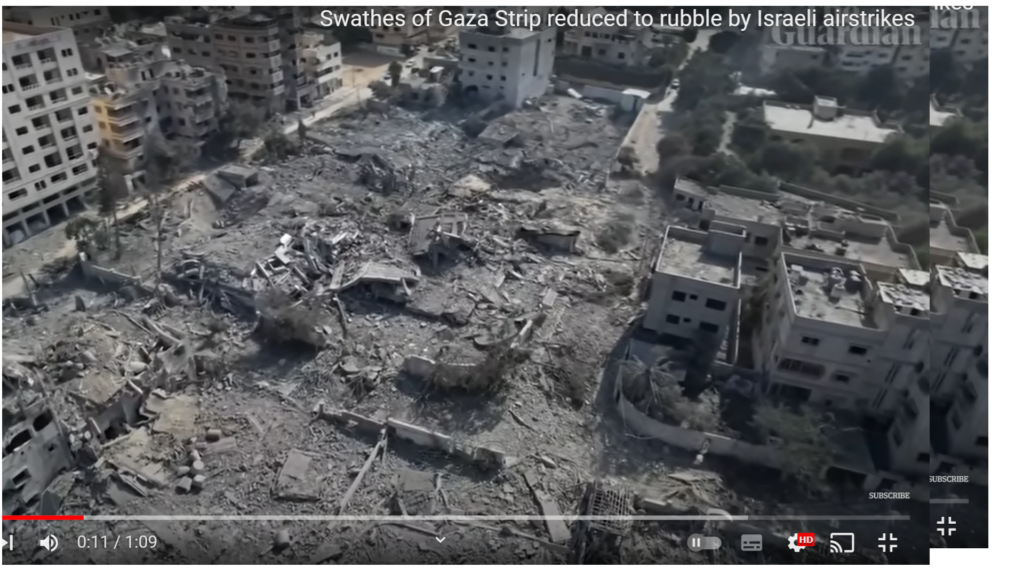Hamas managed to catch Israel off guard on October 7th, but it underestimated Israel’s response.
It anticipated that infiltrations into Israeli settlements along the Gaza Strip’s border and the kidnapping of soldiers and civilians would lead to another round of fighting.
However, it was taken by surprise when Israel declared an all-out war to eliminate Hamas’s military leadership and the extensive military infrastructure it had established in the Gaza Strip since 2007.
Israel initiated a war of attrition against Hamas, a group known for its cruelty, surpassing even ISIS.
This war presents unprecedented challenges, given the enemy’s use of civilian populations as human shields.
This conflict is unlike any previous rounds of fighting between Israel and terrorist organizations in the Gaza Strip.
It is a direct response to the mass killing of approximately 1,400 Israeli civilians and soldiers by Hamas terrorists on the Gaza Strip’s border.
Israel is committed to minimizing harm to innocent civilians, and any Palestinian civilian casualties have been the result of Hamas using them as human shields.
One of the primary objectives of this conflict is to pressure Hamas into releasing the Israeli hostages it holds.
Currently, Hamas holds about 240 hostages, which it uses as bargaining chips.
The war in the Gaza Strip is expected to be protracted, causing great concern among Gaza Strip residents, most of whom support Hamas.
Over a million Palestinians have been displaced from their homes in the north of the Gaza Strip, and the region will undoubtedly pay a heavy price for the crimes committed by the Hamas organization.
Hamas’s actions have also disrupted the normalization agreement between Israel and Saudi Arabia, which was intended to provide a political horizon for Palestinians.
Instead, the Gaza Strip faces its most significant humanitarian crisis, which may lead to the end of Hamas’s rule and the destruction of its military infrastructure.
The moderate Arab world and the international community plan to revisit the two-state solution after the conflict ends.
However, Hamas’s attack on Israeli citizens has delayed political solutions that might jeopardize Israel’s security.
Iran is the main beneficiary of this war, orchestrating a multi-arena war of attrition against Israel by launching attacks from the Gaza Strip, South Lebanon, Syria, and Yemen. Israel must address this significant security challenge.
While the war in the Gaza Strip has taken a toll on IDF soldiers, it is a necessary conflict that Israel must win.
Israel is effectively dealing with Hezbollah’s attacks on its northern border and is combating terrorism in northern Samaria. Israel also faces threats from Houthi rebels in Yemen, which it will need to address with the help of the US.
Despite the economic impact of the war, Israel remains strong and resilient. As it successfully emerged from the COVID-19 crisis, it will overcome the economic challenges posed by the conflict.
It is too early to discuss the post-war situation, as it depends on the conflict’s outcomes.
However, it is clear that the security reality on the Gaza Strip’s border and the northern border will have to change.
One key aspect is holding Iran accountable for the multi-site attack it initiated.
Israel is determined to prevail in this challenging situation.




